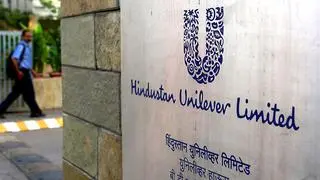A key executive at the Indian operations of Bosch, the world’s largest auto parts maker, has said that the Centre has got its priority right in announcing a relief package for small industries, farmers and migrant workers, while incentives for the automobile sector and the rest can wait.
“I can understand that the auto industry is disappointed about not getting a relief package or even an announcement of the scrappage policy. But one has to look at what matters now and for India as a country. The government did the right thing by looking at the pyramid and what is affordable in this pyramid. So, the government decided to address issues about the small companies, farmers and migrant worker and everything around livelihood,” Jan Oliver Roehrl, Chief Technology Officer and Joint Managing Director, Bosch Ltd, told BusinessLine .
Bosch’s Indian operations recently announced its fourth quarter results which saw the auto parts’ maker posting an 80 per cent decline in net profit to ₹81.14 crore, because of the market slowdown due to the impact of the coronavirus pandemic. For the same period, its revenues fell 17.8 per cent to ₹2,377.28 crore. “The financial figures reported are in-line with the downward trend in the automotive industry, which has been going through a challenging phase for some time. We have to prepare ourselves for a prolonged slowdown in the market in FY 2020-21,” a company official said.
Roehrl said post-Covid-19, changes in technology should be carried out depending upon how relevant they are for all the stakeholders. He said there are multiple dimensions to the crisis arising out of Covid-19. While one is about the humanitarian crisis, it is important to make sure that the employees are safe and continue to stay healthy. Another is about disruption. “If we disrupt, then the current technology becomes obsolete, then people become obsolete. Then, it won’t get social acceptance.”
“If we dig a little deeper, the technology changes have to be sustainable and should take note of whether it is good for climate change,” he said.
The CTO of Bosch said the guidelines regarding BS-IV and BS-VI should be continued which are very clear and very good, while institutions like NITI Aayog should promote policies which are technologically agnostic.
He said that shared mobility will continue to gain traction even though for the short term there will be an increase in the number of private cars. But with high traffic, people will prefer shared mobility.
With regard to some of the companies shifting their operations from China to India, he pointed out that the country has to make doing business here extremely competitive compared with other countries. “We have, as a company, always believed in India. Our focus has always been on products and solutions for India which are being produced here,” he said.
Bosch has said it is adapting to the current market developments with measures to manage resources and enhance operational efficiencies. Various restructuring and transformation projects are under implementation to secure future profitability and growth. It said April and most of May were complete washouts with all its 16 factories being closed. Since then, limited production has commenced in all the factories.








Comments
Comments have to be in English, and in full sentences. They cannot be abusive or personal. Please abide by our community guidelines for posting your comments.
We have migrated to a new commenting platform. If you are already a registered user of TheHindu Businessline and logged in, you may continue to engage with our articles. If you do not have an account please register and login to post comments. Users can access their older comments by logging into their accounts on Vuukle.